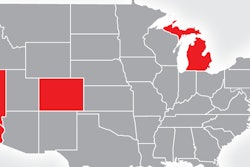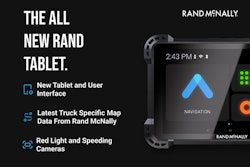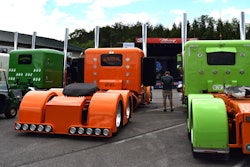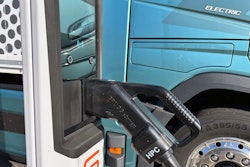Previously in this series: Cargo van hauling: Operating with authority, and the ‘multicarrier’ model
Most hauling the almost 2-year-old Nabis company does is of the last-mile variety on a traditional hub-and-spoke model, says cofounder Vincent Ning. That segment among the nation’s total overall freight mix has been among the fastest-growing due to the rise of e-commerce, with urban and intraregional deliveries multiplying rapidly.
The American Transportation Research Institute published statistics this year showing courier services adding nearly 2,000 businesses between 2015 and 2017. Over the entire sector, 85,000 new employees were hired. From 2007 to 2016, newly registered single-unit commercial vehicles grew by 7.8 percent compared to 4.4 percent for combination truck registrations.
A lot of that last-mile business is being conducted in vehicles such as those used by Nabis, with its Nissan NV200 delivery vans and a lesser number of Mercedes Sprinters. But not much of that freight is destined for the same endpoints Nabis supplies: Newly regulated, and newly legal as of 2018, recreational-cannabis dispensaries in California’s marijuana market.
Vans are ideal for the business because they can appear “a little more discreet” than a box truck, Ning says, and they are not required to cross scales since they’re less than 10,000 pounds. The slightly larger Mercedes Sprinters in Nabis’ 15-unit distribution fleet have the same advantages. He employs them to transfer product from suppliers to, and on point-to-point hauls between, Nabis’ warehouses in the Los Angeles area and Oakland. From those sites, the NV200s, upfitted according to California Bureau of Cannabis Control requirements, “fan out to retail locations with orders.”
Upfit costs can vary considerably. With the Sprinters outfitted with refrigeration capabilities for the cargo hold, the modifications are slightly more expensive, adding $10,000 to $12,000 to an approximate $50,000 initial price tag, Ning says. The Nissans’ upfit, less that climate control, adds about $7,000 to the $24,000 sticker.
The upfit entails secure caging for the product. The bureau’s regulations also require a drop-only safe secured to the frame for cash. Given the continued federal illegality of cannabis, cash underpins much of the legal-cannabis economy.









